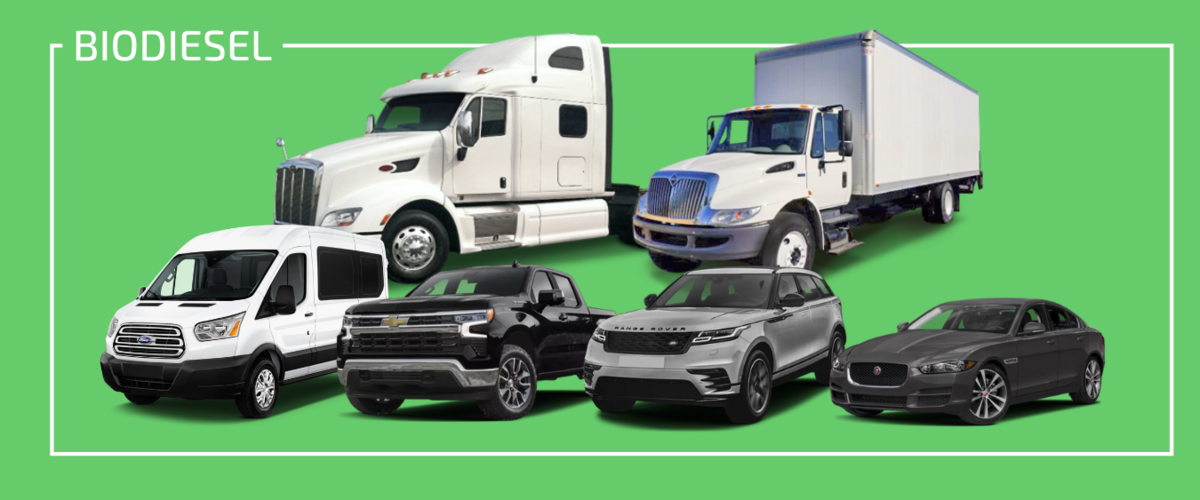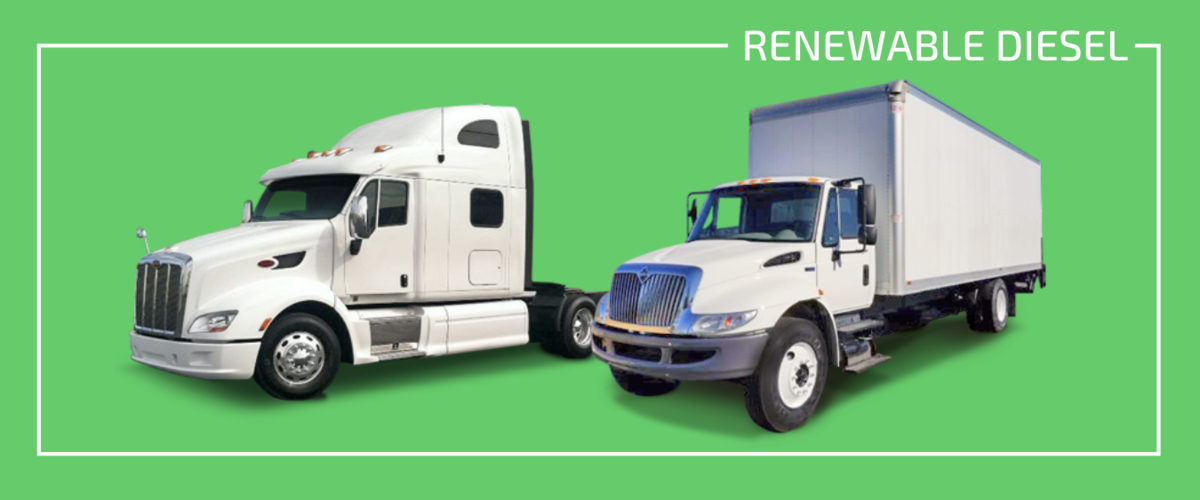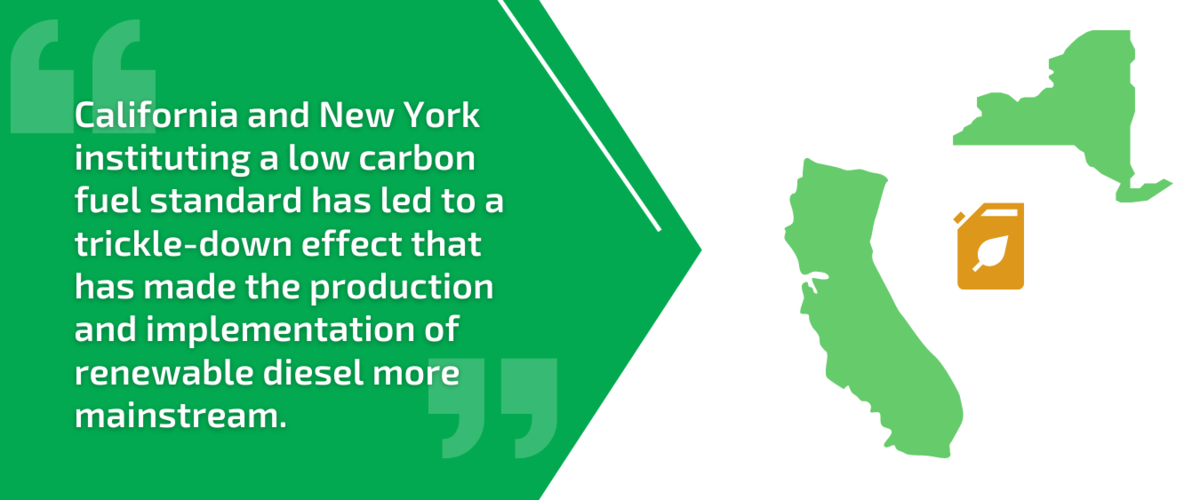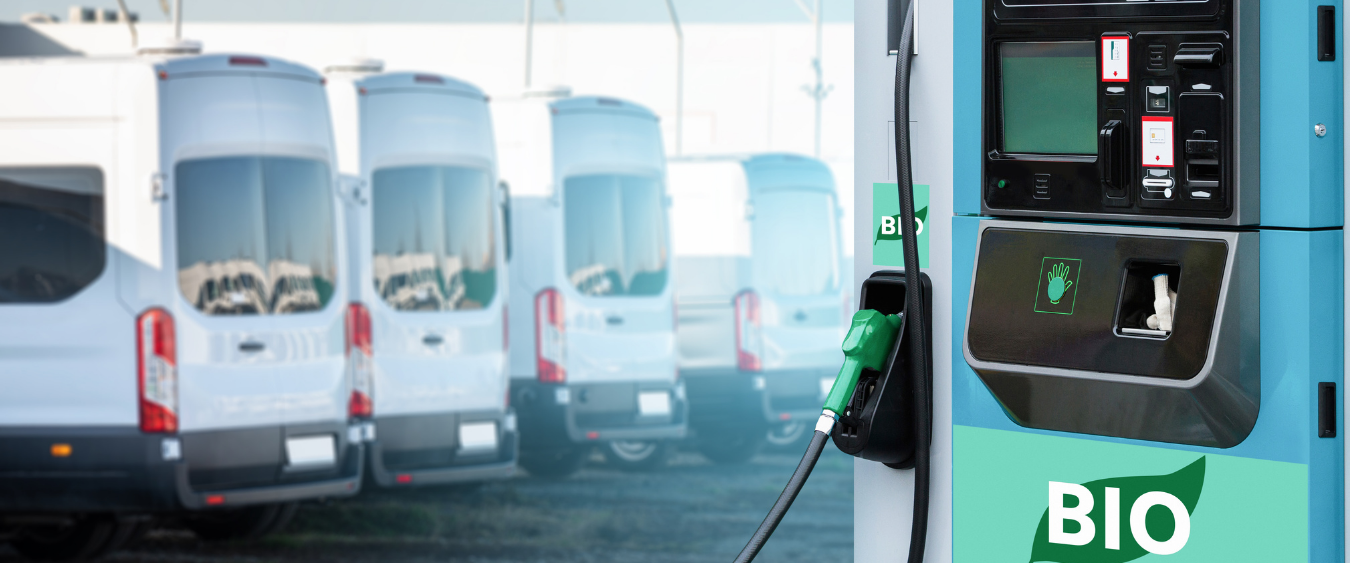What is biofuel?
Biofuels are a viable alternative to petroleum because biofuel burns cleaner and emits fewer emissions. What is biofuel? It’s broadly defined as fuel made from microbial, plant or animal materials, most of which would otherwise be considered waste.
What kind of biofuel for cars is available?
There are various forms of biofuel. Biodiesel, for example, is an add-in fuel that blends with petroleum that burns cleaner and helps reduce carbon emissions.
Renewable diesel is an efficient biofuel because of its independence from petroleum. It is chemically indistinguishable from petroleum-based diesel. This means it can power engines on its own without needing to be blended with petroleum. However, federal legislation for alternative fuels requires a minimum of one percent of any blend must be petroleum diesel, which is why renewable diesel is referred to as R-99 (99 percent renewable, one percent petroleum). Not only is renewable diesel capable of powering vehicles on its own, it also reduces carbon emissions by up to 85 percent per gallon.
Biofuel for cars is crucial in cutting down on emissions. What kind of vehicles can run on biodiesel and renewable diesel? Let’s take a closer look at what kind of engines the two alternative fuels are powering and how they are helping cut carbon emissions.
1. Biodiesel vehicles
Most all engines that run on diesel can become biodiesel cars. As previously mentioned, biodiesel is an add-in fuel and usually comprises anywhere between five and 20 percent of a blend with petroleum. For example, if you see a fuel stranded titled B-5, it means that strand of fuel contains a five percent blend of biodiesel. B-20 is the maximum percentage you will typically see.
A list of cars that run on biodiesel (B-20) include:
- Chevrolet Silverado
- GMC Sierra 250 or 3500 HD
- Ford Super Duty F250, 350, and 450
- Ram 2400, 3500, 4500, and 5500
- Chevrolet Colorado
- GMC Terrain
- Range Rover Vela
- Ford Transit
- Jaguar XE 20D
Biodiesel also fuels local municipality vehicles. For example, the Chicago Park District’s vehicles run on biodiesel derived from used cooking oil. This fuel is a cleaner burning alternative that is compatible with a variety of passenger vehicles on the road, as well as commercial vehicles and is a better option than pure petroleum fuel. Its ability to blend with petroleum makes it a quick, safe and clean way to curb carbon emissions as we transition away from purely petroleum fuel.

2. Renewable Diesel Vehicles
Renewable diesel works the same as biodiesel in that it can power any engine that runs on diesel. As we mentioned earlier, it is a drop-in replacement for petroleum and can power vehicles on its own without needing to be blended. It is compatible with existing diesel engine infrastructure and does not freeze at lower temperatures like biodiesel tends to sometimes do. Renewable diesel is also approved by most heavy-duty trucking manufacturers.
However, because it is a newer option that has not been around for as long as biodiesel, it is not yet as widely produced and therefore is not as readily available to power passenger vehicles across the country and across the world.
It’s also more effective in curbing emissions on a per-gallon basis than biodiesel. Renewable diesel has made an impact on the commercial trucking industry, as more trucking companies are shifting toward powering their fleets with renewable diesel.
The growing production of renewable diesel is making progress, but there is still work left to be done to make it more readily available and to expand its use.

Low Carbon Fuel Standards helping lead the charge
Where R-99 is making headway in becoming mainstream and powering more vehicles is through government initiatives like low carbon fuel standards. In 2011, the state of California implemented a low carbon fuel standard designed to decrease the carbon intensity of California's transportation fuel and provide a variety of low-carbon alternatives, which in turn reduces the state’s dependency on petroleum and enhances air quality.
In the decade since that low carbon fuel standard was instituted, California has shifted away from biodiesel and more toward renewable diesel. The state legislature recently announced that it would no longer buy petroleum or biodiesel for state-owned transportation fleets and will instead pivot to R99. San Francisco and Oakland are among a handful of cities within the state that have already switched their fleets to renewable diesel.
According to one study, the percentage of renewable diesel in on-road transportation grew in California from 69% in 2018 to about 93% of total volume in 2020. In the fourth quarter of 2020, renewable diesel grew to 98% of the total natural gas used as a transportation fuel in the state.
The state of New York is attempting to follow California’s lead
In 2019, the New York State Senate introduced a bill for its own low carbon fuel standard. Though the bill has yet to pass, legislators remain hopeful it will eventually be signed into law. That has not stopped local municipalities from being proactive about curbing carbon emissions. New York City that it will expand its efforts to power 13,000 city-owned vehicles on renewable diesel.

The effect of low carbon fuel standards on biofuels
California and New York instituting a low carbon fuel standard has led to a trickle-down effect that has made the production and implementation of renewable diesel more mainstream. A new renewable diesel production facility was recently built in Southern California. New York recently instituted a blending requirement and is well on its way toward expanding it renewable diesel use beyond New York City’s fleet of vehicles.
So, while renewable diesel is not as mainstream in terms of powering the cars on the road, it has made progress in fueling commercial vehicles and is on the precipice of becoming the fuel of the future.
Biofuels will remain a core component in the fight against carbon emissions. As various forms of biofuel become more mainstream and readily available, its importance in cultivating a more sustainable future will only grow.
DAR PRO Solutions provides used cooking oil recycling services to businesses across the country. The oil we collected is converted into ingredients used in the production of renewable diesel, and we make the oil ourselves at our Diamond Green Diesel plant. Reach out to a DAR PRO representative today and find out how your business can benefit from our program. Call us 24/7/365 at 855-DAR-PRO1 (855-327-7761).
Contact Sales
For customer service inquiries call our toll free number (855) 327-7761
By submitting this form I agree to the privacy policy including the usage of contact details to contact me for marketing purposes.
